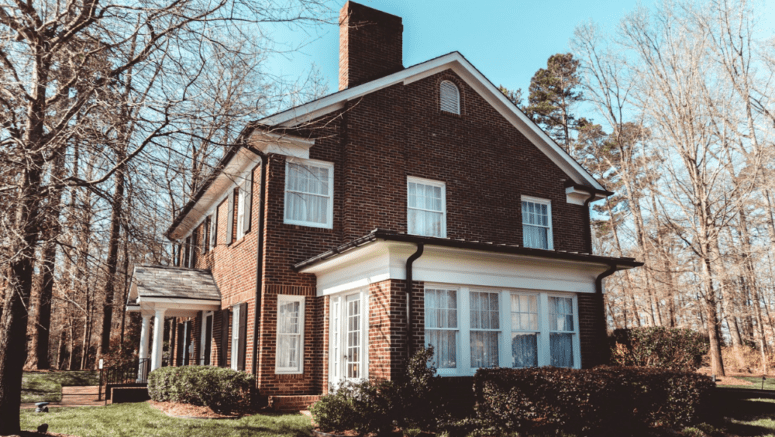When Is the Best Time to Sell a House in Washington, DC?
- Published on
- 10 min read
-
 Cheyenne Wiseman Associate EditorClose
Cheyenne Wiseman Associate EditorClose Cheyenne Wiseman Associate Editor
Cheyenne Wiseman Associate EditorCheyenne Wiseman is an Associate Editor at HomeLight.com. Previously, she worked as a writer for Static Media (Mashed.com and Chowhound.com) and as an editor for CBR.com. Cheyenne holds a bachelor’s degree in English from UC Davis, where she also founded and led a literary magazine called Open Ceilings. She has four years of experience writing and editing on topics including real estate, financial advising, and pharmaceuticals.
If you’re getting ready to sell your home in Washington, D.C., you probably want to make the most of the opportunity — whether that means getting top dollar or closing quickly. Finding a great local agent and preparing your home are both important steps, but when you list can also have a big impact.
To help you determine the best time to sell a house in Washington, D.C., we spoke with Pennye Green, a top-rated real estate agent who consistently outperforms the average local agent. She shares expert guidance and practical tips for reaching serious buyers faster.
Washington, D.C. housing trends
According to Green, the Washington, D.C. housing market stays active year-round, with a reliable pace of both buying and selling activity.
“Washington, D.C. remains a resilient and dynamic real estate market,” she says. “While pricing and pace may shift slightly with national trends, D.C. consistently holds value thanks to its limited space, historic charm, and high demand in core neighborhoods.”
Properties in Washington, D.C. typically go under contract roughly 37 days after hitting the market. This timeframe, known in the industry as days on market (DOM), tracks the span from listing date to contract signing. By comparison, the national average DOM currently stands at 51 days.
The median price for homes in Washington, D.C. hovers around $710,000, marking a 2.2% rise compared to last year.
“Interest rates have had a noticeable impact, with some buyers stepping back temporarily — but serious, qualified buyers are still very much active. We’re also seeing inventory remain relatively low, which continues to support pricing,” says Green.
What do these patterns mean for sellers? Motivated buyers are still active in the market, but carefully pricing and showcasing your Washington, D.C. home are more important than ever to attract serious offers.
When is the best time to sell a house in Washington, D.C.?
Washington, D.C. experiences seasonal patterns with sales volume rising during the spring and fall. This makes the period from March to June the optimal window for achieving top sale prices. If your main goal is a quick sale, the best time to list your home in Washington, D.C. is February.
Because it generally requires around 37 days to secure a buyer and approximately 40 days for a buyer’s mortgage to finalize, you may want to list your property two or three months ahead of the peak selling window.
“Spring — especially March through May — is historically the strongest season for sellers. The weather improves, curb appeal shines, and buyer demand tends to peak. Fall can also be a strong second season, particularly for buyers aiming to close before the holidays or year-end,” says Green.
Let’s take a look at local transaction data to identify the best time to sell a house in Washington, D.C., whether your goal is maximizing profit or achieving a quick sale.
Best times to sell a house in Washington, D.C.
| Selling objective | List month | Close month | Benefit |
| Best time for higher price | March | June | You could sell your house for 4.6% more than the yearly average. |
| Best time to sell fast | February | May | You could sell your house 6 days sooner than if listed in other months. |
Best times to sell a house in Silver Spring
| Selling objective | List month | Close month | Benefit |
| Best time for higher price | February | May | You could sell your house for 9.24% more than the yearly average. |
| Best time to sell fast | February | May | You could sell your house 7 days sooner than if listed in other months. |
Best times to sell a house in Arlington, VA
| Selling objective | List month | Close month | Benefit |
| Best time for higher price | February | May | You could sell your house for 3.92% more than the yearly average. |
| Best time to sell fast | February | May | You could sell your house 8 days sooner than if listed in other months. |
Best times to sell a house in Bethesda
| Selling objective | List month | Close month | Benefit |
| Best time for higher price | February | May | You could sell your house for 6.66% more than the yearly average. |
| Best time to sell fast | February | May | You could sell your house 8 days sooner than if listed in other months. |
Best times to sell a house in Alexandria
| Selling objective | List month | Close month | Benefit |
| Best time for higher price | January | April | You could sell your house for 4.02% more than the yearly average. |
| Best time to sell fast | February | May | You could sell your house 7 days sooner than if listed in other months. |
All tables are based on historical home sales data, 2014-2024
“School calendars are a major factor — many families aim to move before the start of a new school year. University and government hiring cycles can also drive demand at certain times,” Green says.
For details on home-selling trends in other regions, try our Best Time to Sell Calculator.
Using this data as a foundation, you’ll be ready to connect with a leading local real estate professional who can provide tailored advice on the best time to sell a house in Washington, D.C. based on your neighborhood, situation, and local market dynamics.
What’s the worst time to list a house in Washington, D.C.?
According to Green, the worst time to sell a house in Washington, D.C. is late December to early January. “Many buyers and agents are focused on the holidays or travel, and homes can sit longer during this time. That said, motivated buyers who are looking then are often serious and ready to act — so if the property is priced right, it can still move,” she says.
Wondering about your potential net earnings? Try HomeLight’s complimentary Net Proceeds Calculator to get an estimate of how much you might gain from selling your home in Washington, D.C.
What seller concessions help close a sale in Washington, D.C.?
To help finalize a sale, many Washington, D.C. sellers offer concessions or credits to make their listings more appealing. According to Green, the most common in her market are credits toward closing costs or repairs.
“In today’s market, we’re also seeing rate buydowns come into play to help ease the cost of borrowing for buyers. Home warranties can offer peace of mind, especially for older properties, and in some cases, sellers may agree to cover transfer taxes or offer flexible closing timelines,” says Green.
Below are typical seller concessions and credits that can help close your Washington, D.C. home sale:
- Assist with some of the buyer’s closing expenses
- Support a short-term mortgage interest rate reduction
- Provide a repair credit to cover problems uncovered during the home inspection
- Cover fees for the buyer’s home inspection or appraisal costs
- Pay the initial months of HOA dues, where relevant
- Offer to cover the commission for the buyer’s real estate agent
- Prepay annual property taxes or homeowners’ insurance for the first year
Insider tips to help sell your house in Washington, D.C.
As a leading real estate professional in Washington, D.C., Green is an expert at guiding home sellers to meet their goals regardless of timing or market conditions.
Here are some of Green’s top recommendations to successfully sell your property:
1. Set the right price initially
Setting an asking price too high can result in your listing becoming stagnant and needing cuts later. A careful pricing approach informed by recent sales (comparable properties) helps attract serious buyer interest and competitive bids right off the bat.
“Price it right from day one. The first 7 to 10 days are critical — this is when your home gets the most attention,” Green says.
2. Select a skilled agent
Partner with a knowledgeable local agent who understands your area’s market dynamics and can assist with pricing, marketing, and negotiation. The right professional knows how to position your Washington, D.C. residence to attract strong offers. According to HomeLight’s data, the top 5% of agents sell homes for 10% more than the typical agent.
3. Prioritize necessary repairs
Address visible concerns such as dripping faucets, broken tiles, or peeling paint — buyers often worry these minor flaws indicate bigger problems. Concentrate on fixes that yield the best return on investment and instill buyer confidence. A reliable Washington, D.C. agent can also advise you on what to leave alone.
4. Maximize curb appeal both physically and digitally
Neat landscaping, a tidy home exterior, and well-lit entrances create strong curb appeal and a memorable first impression in person. Online, high-resolution photos and engaging virtual tours help your Washington, D.C. property stand out as buyers browse listings.
5. Clear out and depersonalize
Eliminate excess items such as bulky furniture, personal pictures, and knick-knacks to make spaces feel larger and more welcoming. A neutral, clean environment enables buyers to picture themselves living there.
“Declutter, depersonalize, and invest in staging if possible. Even small updates — like fresh paint or new lighting — can have a big impact,” Green advises.
6. Provide a home warranty
Including a home warranty can reassure buyers about potential repair expenses, which is especially helpful for older homes in Washington, D.C. It can also make your listing more attractive in a competitive market.
7. Be accommodating with showings
Greater flexibility with showing times often leads to quicker sales. Offering weekend and evening viewing opportunities benefits busy buyers, including those relocating from out of town.
8. Think about staging
Staged residences tend to sell more rapidly and for higher prices because they help buyers envision the property’s potential. Even partial or virtual staging can enhance your listing’s appeal.
Answers to other Washington, D.C. home-selling questions
What if I need a fast sale and closing in Washington, D.C.?
While some homes in Washington, D.C. may sell quickly, a fast sale is never guaranteed. If you need to sell quickly or lack the time or funds to complete necessary repairs, you might want to request an all-cash offer via HomeLight’s Simple Sale service.
In just a few minutes, you can fill out a brief questionnaire and secure a no-commitment cash offer within 24 hours. Simple Sale accepts homes in nearly any condition across Washington, D.C., allowing you to bypass staging, open houses, and repairs. With Simple Sale, you can close in as little as 7 days.
What is the biggest mistake Washington, D.C. home sellers make?
Green points out that the top mistake sellers make when selling a house in Washington, D.C. is overpricing.
“It’s tempting to ‘test the market,’ but this often leads to stale listings, price drops, and lower final sale prices. Buyers in DC are savvy — they know when something is priced correctly, and they respond accordingly,” she says.
Find a top Washington, D.C. agent for a successful sale
The best time to sell a house in Washington, D.C. depends on your goals and circumstances. However, listing your property to ensure a quicker sale at a better price doesn’t have to be complicated. With the right guidance, you can make well-informed choices and avoid common errors.
“A good agent will help you navigate not just the market, but also your personal goals, timing, and concerns. The right guidance can turn a stressful process into a smooth and rewarding one,” Green says.
Partnering with a skilled local agent means having a knowledgeable advisor to support a successful sale. Connect with a top agent today.
If you’re simultaneously buying and selling a home, explore HomeLight’s innovative Buy Before You Sell program. This smart option taps into your home’s equity to simplify the process. Submit a non-contingent offer on your new home and move only once. Watch this short video to learn more.
Header Image Source: (Ismael Paramo / Unsplash)




